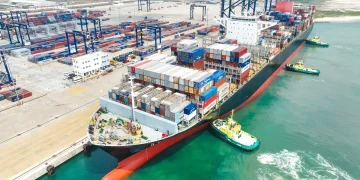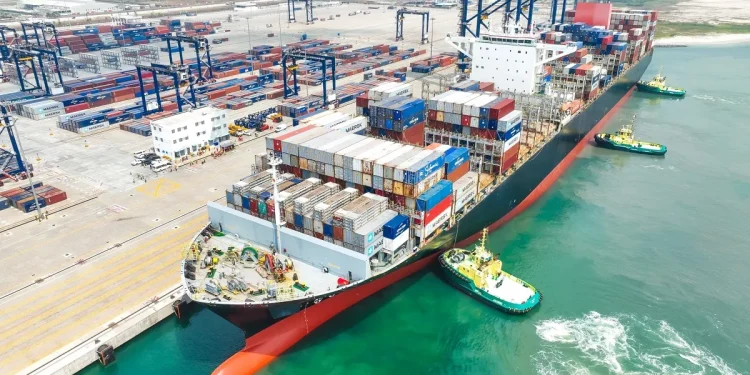By Maria Kalamatas | July 29, 2025
Lagos, July 29 — Rows of containers stretch for kilometers along the quayside at Nigeria’s busiest port. Cranes stand idle, and truck queues snake toward the highway, horns blaring. For the shippers waiting on everything from electronics to construction materials, each hour of silence is money lost.
“We’ve had cargo sitting for over a week, some of it perishable,” said Kunle Adebayo, owner of a Lagos-based freight company that handles imports for regional retailers. “No one can give us a clear timeline. Clients are calling nonstop, and all we can say is we’re waiting like everyone else.”
Disputes at the center of the slowdown
The bottleneck stems from a protracted standoff between port management and dockworkers over pay and staffing levels. Strikes and work slowdowns have cut daily throughput by nearly 40 percent, forcing carriers to divert vessels to secondary terminals in Ghana and Benin.
Forwarders say some importers are paying premiums to move urgent shipments by air, while others are rerouting cargo through overland corridors, adding days — and thousands of dollars — to delivery schedules.
Pressure mounts on supply chains
Retailers across West Africa are bracing for stock shortages, particularly for consumer electronics and auto parts. Construction firms are also feeling the pinch, with delayed materials threatening project timelines in Lagos and Abuja.
“Even when the port reopens fully, the backlog will take weeks to clear,” Adebayo noted. “And every day that passes, more containers pile up offshore.”
Carriers and forwarders seek quick fixes
Shipping lines have begun waiving some detention charges for stuck containers, while third-party logistics providers are pooling trucking resources to move cleared cargo more quickly once operations resume. Some forwarders are even exploring short-term storage deals inland to free up yard space.
What’s next for regional trade
Analysts warn that unless the staffing dispute is resolved within days, ripple effects will spread across regional supply chains, driving up prices and eroding reliability for importers.
“This isn’t just a local disruption,” Adebayo said, looking out over the idle cranes. “If Lagos stays gridlocked, West Africa’s entire logistics network feels the shock.”





















